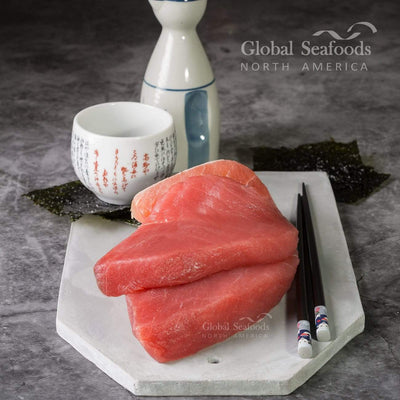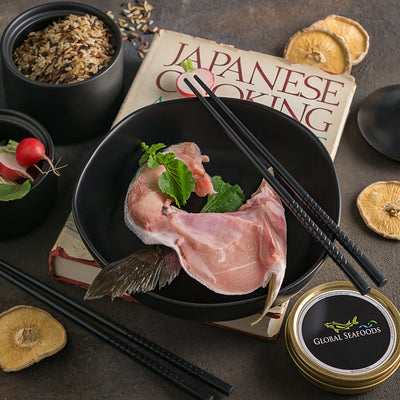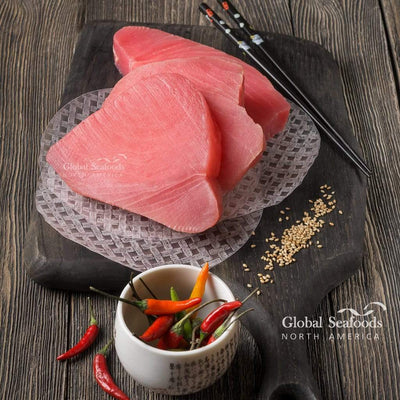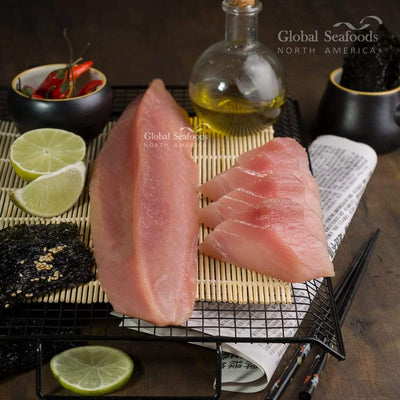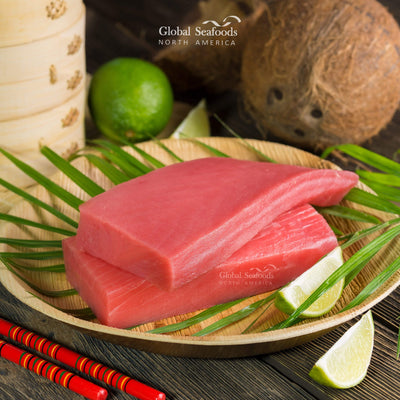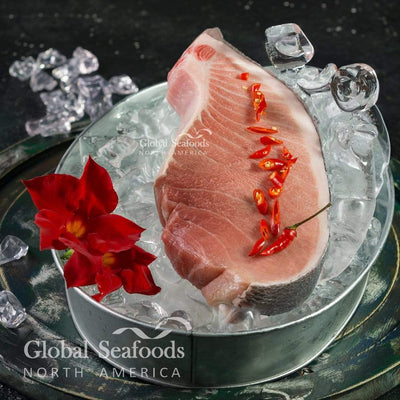+Shop Now
+Categories
- Abalone
- Ahi Tuna
- Alaskan King Crab Legs
- Alaskan Pollock
- Alaskan Sockeye Salmon
- Albacore Tuna
- Anchovy
- Anxiety Relief
- appetizer
- Atlantic Salmon
- Beluga Caviar
- Best Sushi
- black caviar
- black cod
- Blue crabs
- Bluefin Tuna
- Brain Function
- Branzino
- breakfast
- Calamari
- caviar
- Caviar Recipes
- Chef Knives
- Chilean Sea Bass
- Clams
- cocktail caviar
- Cod
- Coho Salmon Caviar
- collagen
- Cooking Methods
- crab
- Crab Balls
- Crab Cakes
- Crab claws
- crab meat
- Crab Recipes
- culinary tips
- decline-sturgeon
- Diver Scallops
- Dover Sole
- Dry Aged Fish
- Dungeness Crab
- Dungeness crab clusters
- Dungeness Crab Legs
- Exotic Shellfish Sampler
- Fish and Seafood
- fish oil
- Fish Sauce
- flat fish
- FLOUNDER FISH
- Focus
- Fresh Seafood Delivery
- Fresh Wild Alaskan Salmon
- Geoduck
- Gooseneck Barnacles
- Gourmet Seafood Platter
- haddock
- halibut
- Halibut Recipes
- hamachi
- Hamachi Recipe
- health
- healthy eating
- Ikura
- Japanese restaurants
- Jonah crab
- Jumbo Sea Scallops
- Kaluga Caviar
- kelp
- king crab
- King Crab Legs
- King Salmon
- kitchen
- Lingcod
- Live King Crab
- Live Lobsters for Sale
- Live Scallops
- Live seafood
- lobster
- Lobster Tail
- luxury food
- mahi mahi
- Marine Collagen
- Mollusk
- Monkfish
- Mussels
- New
- Nutrition
- octopus
- Opah
- Ora King Salmon
- Osetra Caviar
- Ossetra Sturgeon Caviar
- oysters
- Pacific Cod
- Pacific Hake
- Pacific Halibut
- Pacific Ocean
- Pacific Whiting
- Pacific Whiting Recipe
- Paddlefish Caviar
- Petite Oysters
- Petrale Sole
- Poke Tuna
- Pollock
- Pregnancy
- Premium Caviar Selection
- Recipe
- red caviar
- Red Crab
- rock fish
- Rockfish
- Rockfish Recipes
- sablefish
- Sablefish (Black Cod) Recipes
- salmon
- Salmon Caviar
- Salmon lox
- Salmon Poke
- Salmon Recipes
- salmon roe
- Sardines
- Sashimi
- Sashimi-Grade Tuna
- Scallop
- scallops
- Scallops Recipe
- Sea Urchi Recipe
- sea urchin
- Sea Urchin Sushi
- sea weed
- Seafood
- Seafood Dishes
- Seafood Market
- Seafood Recipe
- Seafood Restaurants
- sevruga caviar
- shellfish
- Shrimps & Prawns
- Silver Salmon
- Smoked
- Smoked Salmon
- Smoked Tuna
- Snail Caviar
- Snapper Recipe
- snow crab
- Sole & Flounder Recipes
- Squid
- Steelhead
- Sturgeon Caviar
- Sustainable Seafood Choices
- Swordfish
- Tilapia
- Tilapia Fish
- Tobiko
- Trout
- tuna
- Tuna Recipe
- weathervane scallops
- white fish
- White Sturgeon
- White Sturgeon Caviar
- Whiting Fish
- Wild Caught Shrimp
- Yellowfin Tuna
- Yellowtail snapper
The Exquisite Delicacy of White Tuna: A Guide to Its Rich Flavor and Health Benefits
May 15, 2023

White Tuna - The Exquisite Delicacy
White Tuna: An Exquisite Delicacy with Irresistible Flavor and Health Benefits
White tuna, also known as "albacore tuna," is a highly sought-after delicacy that delights seafood enthusiasts around the world. Its tender flesh and delicate flavor make it a popular choice in sushi and sashimi dishes. Not only does white tuna satisfy your taste buds, but it also provides an array of health benefits. In this article, we will explore the allure of white tuna and why it deserves a place on your plate.
What is White Tuna?
White tuna, scientifically known as Thunnus alalunga, belongs to the same family as other tuna species. However, what sets white tuna apart is its pale pink to white flesh, compared to the darker shades found in other varieties. This unique characteristic gives it a distinct taste and texture, making it highly prized in the culinary world.
The Rich Flavor of White Tuna
White tuna boasts a mild and buttery flavor that is both delicate and rich. Its tender meat easily melts in your mouth, leaving a savory and unforgettable experience. The flavor profile of white tuna is often described as subtle, with a hint of sweetness. This versatility makes it a favorite ingredient in a wide range of dishes, from traditional sushi rolls to gourmet tuna salads.
Health Benefits of White Tuna
Apart from its delectable taste, white tuna is packed with essential nutrients that promote overall well-being. Here are some notable health benefits of incorporating white tuna into your diet:
-
High Protein Content: White tuna is an excellent source of lean protein, which is essential for muscle growth, repair, and maintenance. A serving of white tuna provides a substantial amount of protein while being relatively low in calories.
-
Omega-3 Fatty Acids: Omega-3 fatty acids found in white tuna contribute to heart health by reducing inflammation and lowering the risk of cardiovascular diseases. These healthy fats also support brain function and promote healthy skin.
-
Vitamins and Minerals: White tuna contains vitamins B6 and B12, which aid in energy metabolism and the production of red blood cells. It is also a good source of selenium, a mineral that acts as an antioxidant and supports a healthy immune system.
FAQs About White Tuna
-
Is white tuna safe to eat raw?
Yes, white tuna is safe to eat raw, and it is a popular choice for sushi and sashimi dishes. However, it is crucial to ensure that the fish is sourced from reputable suppliers to minimize the risk of foodborne illnesses.
-
Can white tuna be cooked?
Certainly! White tuna can be prepared using various cooking methods, including grilling, baking, or pan-searing. Its delicate flavor and texture are best preserved by cooking it quickly over high heat.
Conclusion
White tuna offers a sublime dining experience with its delicate flavor and tender flesh. From its rich taste to the array of health benefits it provides, white tuna stands out as a culinary treasure. Whether you enjoy it raw in sushi or cooked in mouthwatering dishes, this exquisite delicacy is sure to leave a lasting impression. Indulge in the allure of white tuna and elevate your culinary adventures today.
🐟 Buy Premium Tuna Online – Sushi-Grade, Fresh & Delivered to Your Door!
Looking for high-quality, sushi-grade tuna for your next meal? Order online from GlobalSeafoods.com and enjoy wild-caught, premium tuna delivered straight to your home! Whether you're making sashimi, poke bowls, or grilled tuna steaks, we have the freshest selections for you.
🔥 Top Tuna Selections:
✅ Ahi Tuna Steaks – Perfect for searing, grilling, or poke bowls.
✅ Sushi-Grade Tuna Saku Blocks – Ideal for sushi, sashimi, and tartare.
✅ Fresh Albacore Tuna Whole – A lean, mild-flavored favorite.
✅ Bluefin Tuna – The ultimate sushi-grade tuna, rich and buttery.
✅ Albacore Tuna Fillets – Perfect for grilling, salads, or canning.
✅ Premium Tuna Selection – A variety of fresh tuna cuts for every dish.
🚚 Fast, Fresh Shipping | 💯 Sustainably Sourced | 🏆 Sushi-Grade Quality
📺 Want to learn how to prepare and cook tuna like a pro? Watch seafood preparation tutorials on Global Seafoods’ YouTube Channel!
🛒 Order your premium tuna today at GlobalSeafoods.com!
Related Products
Share:
Also in News

How to Make Sea Bream Sushi With Dry-Aged Tuna & Crab Roll — Step-by-Step With Chef Joshua
December 07, 2025
A complete guide to making Sea Bream sushi at home, including filleting, curing, slicing, and building a Dry-Aged Tuna & Crab sushi roll. Chef Joshua shares professional tips for restaurant-quality results.

Boiled Crab for Game Night: Everything You Need for a Perfect Seafood Party
June 27, 2025
Take your game night to the next level with a Boiled crab party. Learn the best recipes, cooking tips, and hosting hacks for a memorable seafood feast.

Boiled Crab for Date Night: A Romantic Guide to the Perfect Seafood Feast
June 27, 2025
Make your next date night unforgettable with a romantic Boiled crab experience. This guide covers everything you need to know, from ambiance to the best crab varieties.
+Shop Now
+Categories
- Abalone
- Ahi Tuna
- Alaskan King Crab Legs
- Alaskan Pollock
- Alaskan Sockeye Salmon
- Albacore Tuna
- Anchovy
- Anxiety Relief
- appetizer
- Atlantic Salmon
- Beluga Caviar
- Best Sushi
- black caviar
- black cod
- Blue crabs
- Bluefin Tuna
- Brain Function
- Branzino
- breakfast
- Calamari
- caviar
- Caviar Recipes
- Chef Knives
- Chilean Sea Bass
- Clams
- cocktail caviar
- Cod
- Coho Salmon Caviar
- collagen
- Cooking Methods
- crab
- Crab Balls
- Crab Cakes
- Crab claws
- crab meat
- Crab Recipes
- culinary tips
- decline-sturgeon
- Diver Scallops
- Dover Sole
- Dry Aged Fish
- Dungeness Crab
- Dungeness crab clusters
- Dungeness Crab Legs
- Exotic Shellfish Sampler
- Fish and Seafood
- fish oil
- Fish Sauce
- flat fish
- FLOUNDER FISH
- Focus
- Fresh Seafood Delivery
- Fresh Wild Alaskan Salmon
- Geoduck
- Gooseneck Barnacles
- Gourmet Seafood Platter
- haddock
- halibut
- Halibut Recipes
- hamachi
- Hamachi Recipe
- health
- healthy eating
- Ikura
- Japanese restaurants
- Jonah crab
- Jumbo Sea Scallops
- Kaluga Caviar
- kelp
- king crab
- King Crab Legs
- King Salmon
- kitchen
- Lingcod
- Live King Crab
- Live Lobsters for Sale
- Live Scallops
- Live seafood
- lobster
- Lobster Tail
- luxury food
- mahi mahi
- Marine Collagen
- Mollusk
- Monkfish
- Mussels
- New
- Nutrition
- octopus
- Opah
- Ora King Salmon
- Osetra Caviar
- Ossetra Sturgeon Caviar
- oysters
- Pacific Cod
- Pacific Hake
- Pacific Halibut
- Pacific Ocean
- Pacific Whiting
- Pacific Whiting Recipe
- Paddlefish Caviar
- Petite Oysters
- Petrale Sole
- Poke Tuna
- Pollock
- Pregnancy
- Premium Caviar Selection
- Recipe
- red caviar
- Red Crab
- rock fish
- Rockfish
- Rockfish Recipes
- sablefish
- Sablefish (Black Cod) Recipes
- salmon
- Salmon Caviar
- Salmon lox
- Salmon Poke
- Salmon Recipes
- salmon roe
- Sardines
- Sashimi
- Sashimi-Grade Tuna
- Scallop
- scallops
- Scallops Recipe
- Sea Urchi Recipe
- sea urchin
- Sea Urchin Sushi
- sea weed
- Seafood
- Seafood Dishes
- Seafood Market
- Seafood Recipe
- Seafood Restaurants
- sevruga caviar
- shellfish
- Shrimps & Prawns
- Silver Salmon
- Smoked
- Smoked Salmon
- Smoked Tuna
- Snail Caviar
- Snapper Recipe
- snow crab
- Sole & Flounder Recipes
- Squid
- Steelhead
- Sturgeon Caviar
- Sustainable Seafood Choices
- Swordfish
- Tilapia
- Tilapia Fish
- Tobiko
- Trout
- tuna
- Tuna Recipe
- weathervane scallops
- white fish
- White Sturgeon
- White Sturgeon Caviar
- Whiting Fish
- Wild Caught Shrimp
- Yellowfin Tuna
- Yellowtail snapper
Shop Now
Main
News & Updates
Sign up to get the latest on sales, new releases and more…
© 2025 Global Seafoods North America.

